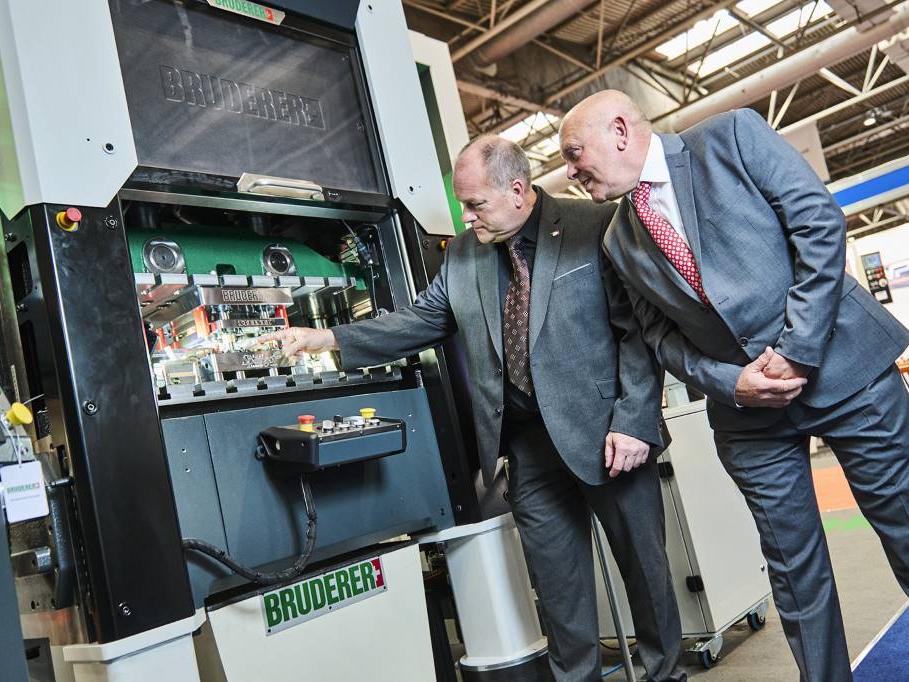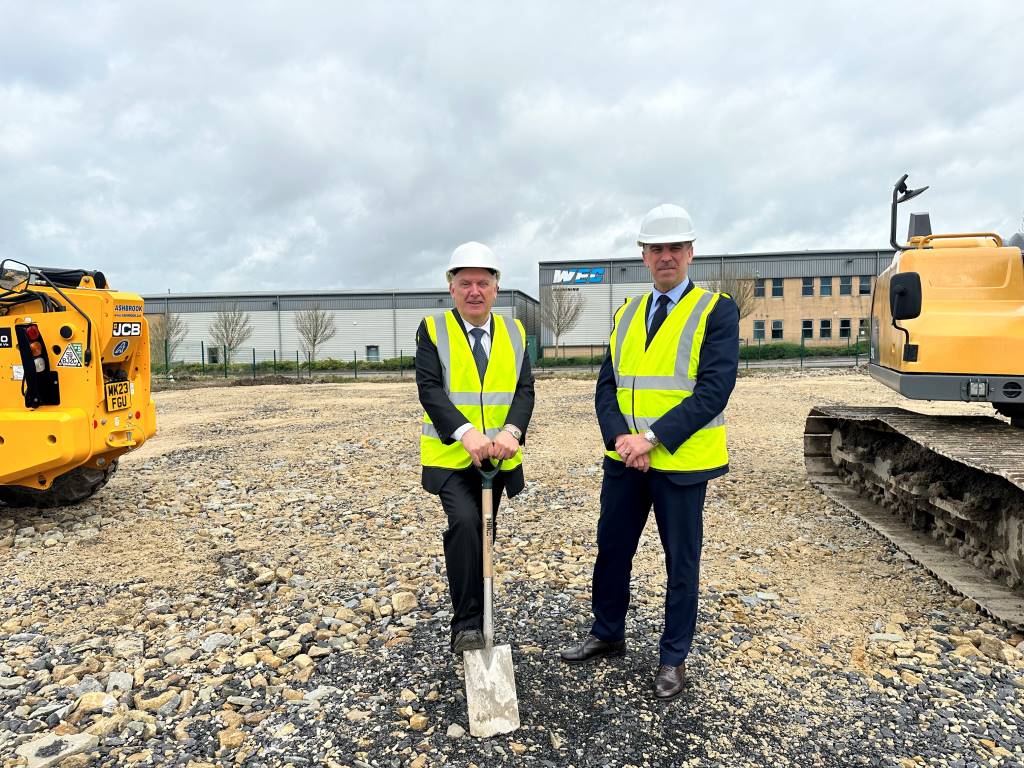OCTOBER COVER STORY: Consult the Oracle

Developed in partnership with the Manufacturing Technology Centre (MTC) in Coventry over a two-year period, Jemtech’s Oracle – a new, intelligent and fully automated metalworking fluid management system claims to embrace the principles of Industry 4.0 and ‘Factory of the Future’ technology. Dave Tudor attended the official launch event during August.
It’s so easy to overlook the importance of cutting fluid in a machining process. Typically it only represents around 0.5% of the total costs when compared to the machine tool, cutting tools and labour costs and let’s be honest, cutting fluids, when kitting out a machine shop are not exactly top of the shopping list. Companies would much rather spend their hard earned cash on the latest all singing, all dancing million-axis machine tool than worry about the stuff that keeps the metal cool.
And that’s understandable. Machine tool and cutting tool technological advances are constantly evolving and manufacturers need to keep up in order to stay competitive – but spare a thought for the humble cutting fluid. At the end of the day it is the crucial interface between the component and cutting tool and selection of the right product can reduce scrap rates, improve quality, reduce cycle times, increase tool life and reduce actual fluid consumption levels. In a nutshell, it can make companies more productive.

Steve Coull, Jemtech’s CEO and his team first announced the imminent arrival of Oracle at the MACH show back in April so interest in its official launch was understandably high. In fact 140 VIP visitors across two sessions filled the auditorium at the MTC.
After initial introductions from Mr Coull and Craig Stevens, the MTC’s head of industrial partnerships it was down to business but before getting into the specific details about Oracle, it’s important to understand Jemtech’s wider approach to coolant management.
Not the tip of the iceberg
Readers will undoubtedly know that East Sussex-based Jemtech is the exclusive UK distributor for Blaser Swisslube products and both companies pioneer an approach to coolant management known as ‘Liquid Tool’ which is a holistic view on the metalcutting process as a whole. Steve Coull takes up the story: “Companies will generally spend ten times as much on cutting tools as they do on cutting fluids so in the overall scheme of things it represents a very small amount in terms of expenditure,” he explained. “But whilst the cost is small, the effect on machine tools, cutting tools and the well-being of staff can be dramatic.
“Think of it as an iceberg: the visible part is the top level price of the fluid – price per litre; price per drum; price per month – but the real cost of ownership lies below the waterline and is centred around time. Badly maintained and managed cutting fluids can have a significant effect on cycle times because as soon as operators start to run into issues with breaking tools and vibration they reduce speeds and feeds, slowing things – and productivity – down.
“Similarly time is wasted cleaning out machine tool sumps where the cutting fluid had gone off. Also product quality is affected in terms of maintaining tolerances and good surface finishes. A company’s profit is in the components it makes – and more efficiency equals more profit.”
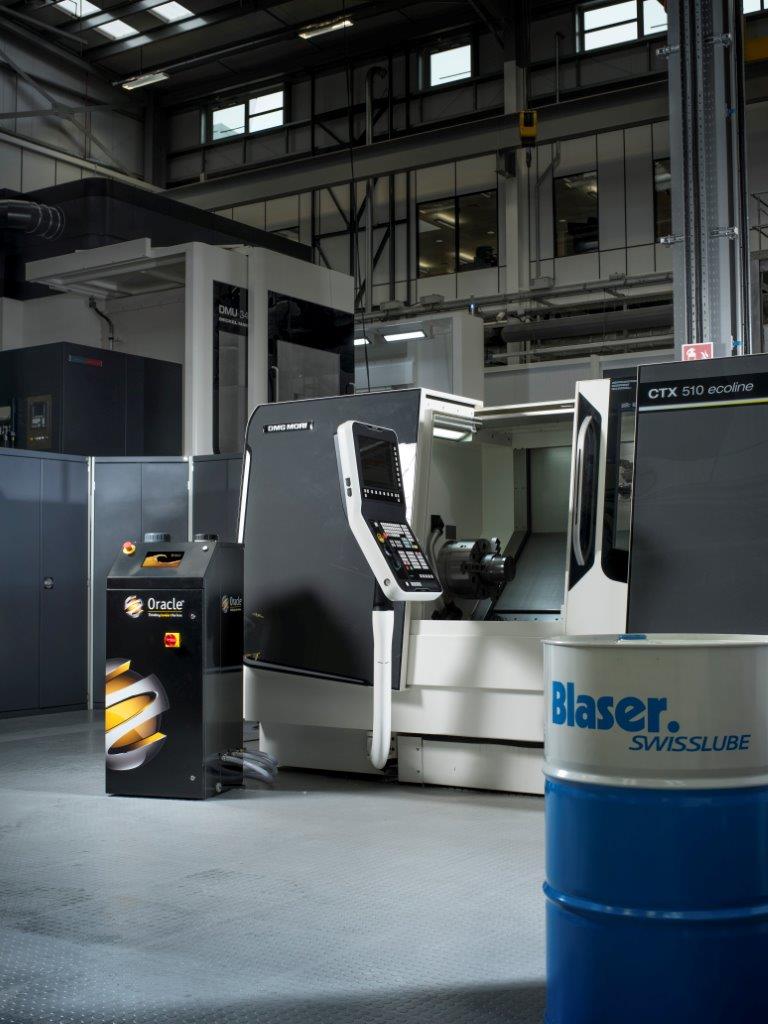
LiquidTool is the name given to Blaser/Jemtech’s systematic data driven process to establish best practice and identify how and where significant technical and commercial gains can be realised. The process involves Jemtech engineers initially investigating and understanding a customer’s existing metalworking fluid use, application and associated costs. The recorded data is analysed – using the Blaser LiquidTool software – with the gains from changing to Blaser fluids being clearly documented, monetised and presented back to the customer.
Often the projected gains can be considerable and then, with the customer’s agreement, Jemtech will install Blaser fluids and monitor and analyse their performance – the ultimate goal being to deliver the actual gains as presented during the initial fact finding stage.
“LiquidTool works and works well,” Mr Coull explains. “By documenting potential, and then delivering actual, real monetary gains customers can see the binary nature of their choice of metalworking fluids ie. what you put in has a direct correlation to what you get out. We have to deliver on what we’ve promised or we’ve failed the customer. That’s the bottom line. The data doesn’t lie.”
Eureka moment
At the event, the concept behind LiquidTool set the scene for the unveiling of Oracle which is very much part of the same ethos. The original idea was conceived following a visit by Mr Coull to a potential European customer who was having particular cutting fluid issues. He modestly describes the Oracle ‘light bulb’ moment as common sense but it triggered a series of meetings with machine and cutting tool manufacturers as well cutting fluid experts from Blaser in Switzerland.
“What became apparent after the customer visit was that the data we were working with was inaccurate and didn’t represent what was actually in the sump,” he recalled. “I remember thinking if aero engine OEMs can accurately monitor engine performance 36,000ft up in the air travelling at 600mph across the centre of Europe, why can’t we replicate that with a stationary quantity of fluid an inch or so off the floor?”
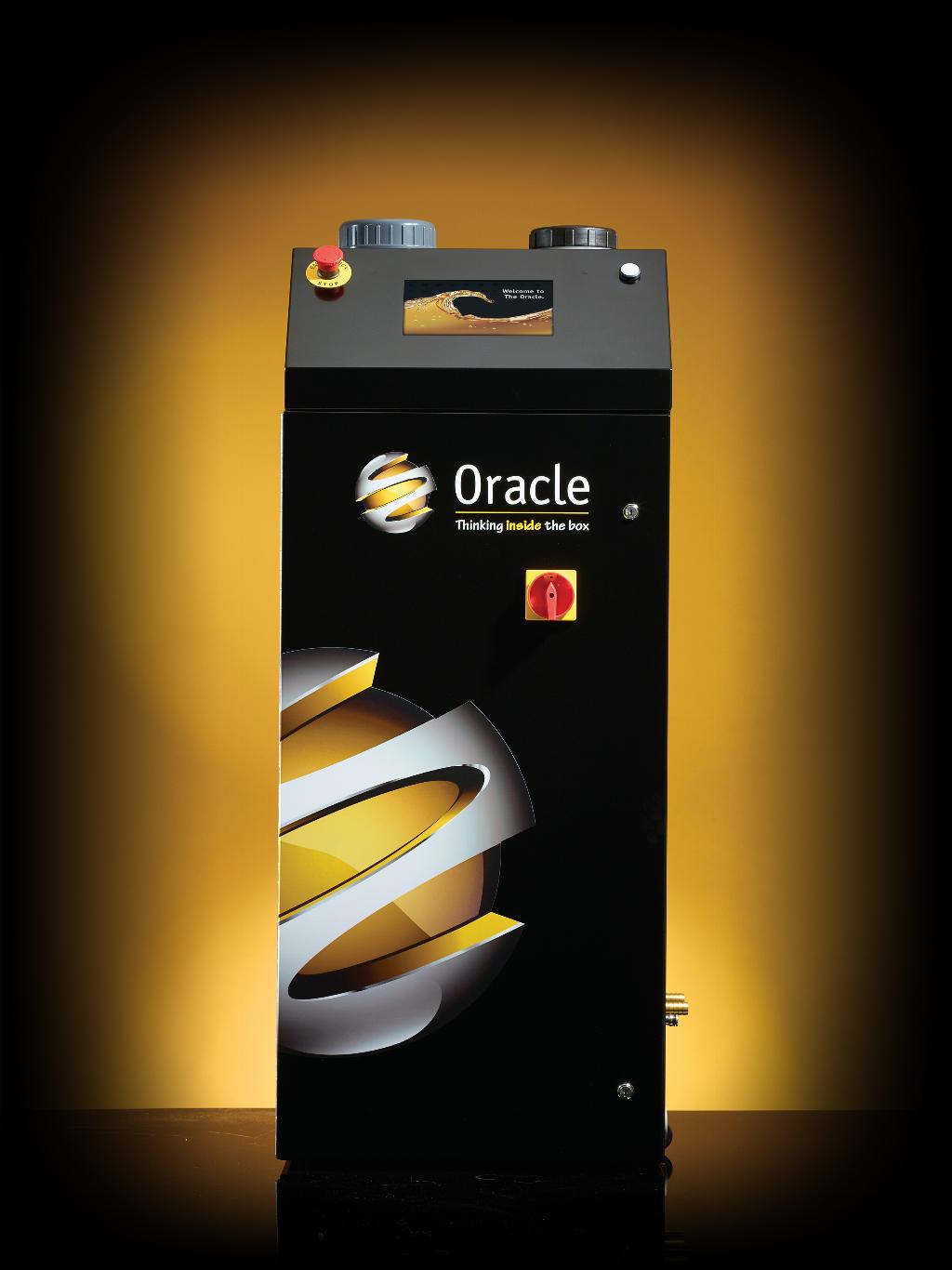
So the idea for an accurate, self-managing, automated system was born and work began at the MTC (Jemtech is a member). One of the people instrumentally involved with the project from day one was Robert Foster, at the time an apprentice at the MTC who impressed so much that he was taken on by Jemtech as a full time employee the day before the Oracle launch event. A proud moment not only for Mr Foster but also his parents who were in attendance at the launch.
Also worthy of commendation on the Oracle roll of honour is Adam Land, Oracle’s product development manager who joined Jemtech from the MTC in April this year. “Adam’s background, knowledge and experience gained working in key projects at the MTC will be invaluable in his new Oracle role at Jemtech,” Mr Coull stated.
Real-time intelligence
Developed by Jemtech and the MTC, Oracle is an intelligent fluid management system that provides users with a consistent supply of accurate and reliable real-time data on the condition of cutting fluids in a machine tool sump. It can measure various aspects of a fluid’s condition including volume, concentration, PH, temperature and conductivity as well as consumption levels.
But Oracle doesn’t only monitor, capture and record data in the Cloud for future use and reference; it also automatically performs troubleshooting and remedial functions when things start to deviate from the norm, automatically rectifying the condition of the fluid in the sump. Using a real world example, if the volume of cutting fluid in the sump is too low, Oracle will sense the problem and automatically top up the level to pre-defined parameters. The same applies to PH and concentration – true real-time condition monitoring.
The benefits of the system are numerous. From a health and safety viewpoint, minimising any human contact with coolant has got to be a good thing but other plusses include: better utilisation of labour; increased cutting tool life through optimised coolant condition; more machine tool uptime; reduced maintenance costs; reduced cutting fluid consumption, disposal costs and scrap rates; and improvements in component quality.
Operationally the small footprint Oracle unit sits alongside the machine tool and is directly connected to the machine tool sump. Two pipes (draw and return) link Oracle to the sump and these incorporate sensors measuring cutting fluid data such as levels, temperature and flow. Two reservoir tanks are included: a 50 litre neat product tank and a 12 litre additive tank. Data is stored locally on the unit itself via PLC and also backed up on Jemtech’s servers. Connectivity is provided courtesy of an integral 3G SIM card.
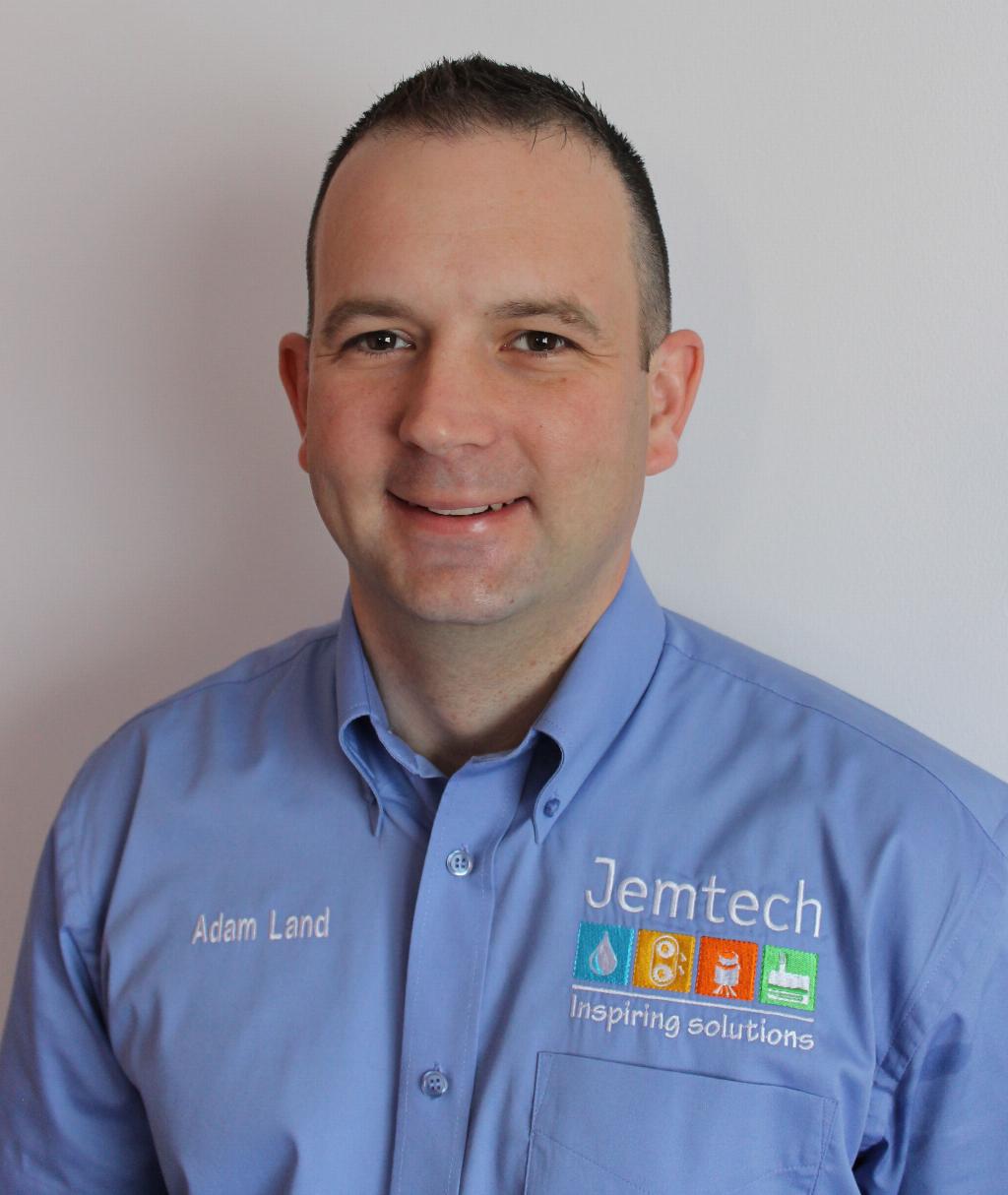
“Periodically, Oracle will draw a sample of cutting fluid from the sump,” says Adam Land. “The frequency can be set by the customer but the default is every 12 hours which avoids the accumulation of superfluous quantities of data.
“From the sample, the four main parameters Oracle will check are concentration, PH, temperature and conductivity,” he adds. “At the same time, the level in the sump will also be analysed and that allows us to make any necessary adjustments. If at an intermediate point between the 12-hour sampling period the sump level drops – during a heavy machining session for example – a measurement and top-up process is automatically triggered.”
It’s important to note that Jemtech’s engineers have access to the same data as the customer sees so it could well be the case that it will act on a problem before the customer even notices it. Indeed, a vital part of the Oracle package is the peace of mind that experienced and knowledgeable Jemtech engineers are keeping a close eye on things remotely, ready to step in if necessary.
Hit the hub
Oracle has a dedicated website (www.oraclefms.co.uk) that not only provides a wealth of general information about the system but also acts as a secure Customer Data Hub login. The MTC itself has two Oracle systems installed and at the launch event we were able to see real-time data – via the portal – from its two DMG Mori machines; a CTX 510 and DMU 340FD.
The system can be set-up to send email alerts should operational parameters start to drift and data can also be exported in csv format for further analysis. Details of Jemtech service visits are also recorded on the system.
And the cost of the Oracle system? Steve Coull is keen to emphasise that costs vary and will depend on a customer’s specific requirements as well as the length of the Oracle Contract (three or five years) agreed in advance, prior to installation.
Whatever the length of the term, costs will include an initial (token) down payment followed by fixed (36 or 60) monthly rental instalments. An Oracle maintenance contract is also available with its cost dependent on the machine tool type and size. The contract includes a monthly service, which includes parts and labour, a monthly top-up of the unit, an annual clean out of the machine tool, automatic Oracle software updates and upgrades, and the cost of the integral SIM card.
Mr Coull is also keen to highlight that Oracle units will be manufactured entirely in the UK.
Oracle www.oraclefms.co.uk
Jemtech www.jemtech.co.uk





